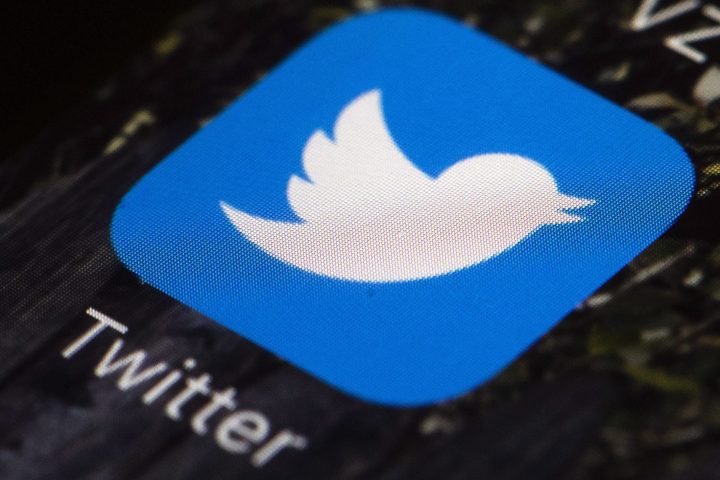With social media playing bigger roles in our lives — and politics — it is still a grey area over how much leeway the companies behind the platforms should play in moderating the content.

As Canadians have recently seen, Twitter has played a role in the federal election after labelling a tweet as “manipulated media” — a move that one expert said is “unacceptable.”
On Aug. 22, Twitter applied the label to a tweet from Deputy Prime Minister Chrystia Freeland that featured a video of Conservative Leader Erin O’Toole talking about Canada’s health care system.
The tweet stitched together segments of a speech by O’Toole that painted him in favour of a private health care system, but left out O’Toole saying he would “make sure universal access remains paramount.”
According to Twitter’s policy, it labels content as “manipulated” if it is “significantly and deceptively altered or manipulated,” which involves a look at whether the video’s composition, sequence, timing or framing has been changed.
Twitter’s policies show it is more likely to deem a tweet manipulated if it has been spliced, reordered or slowed down to change its meaning.

Since the tweet was flagged, Liberal Leader Justin Trudeau has defended it, saying that the full video of O’Toole was also posted by the Liberals.
O’Toole has since asked the Commissioner of Canada Elections to investigate the tweet as a violation of the Canada Elections Act.

Get daily National news
A spokesperson for the Commissioner said in an email that they could not comment on whether the Commissioner will proceed with an investigation, but did say that Twitter did not violate the Canada Elections Act by applying the label.
“There is nothing in the Canada Elections Act that would prohibit a social media platform from developing rules and/managing content on their platform, provided those rules are applied consistently,” Spokesperson Michelle Laliberté said.
Nevertheless, Carleton University Journalism and Communication Professor Dwayne Winseck said that it is “unacceptable” that Twitter would take the liberty to slap a label on it.
Despite Twitter publicly displaying its policy for how tweets are deemed “manipulated media,” Winseck said that it is still not clear how Twitter came to the conclusion for this specific tweet, and even still, it is a process coming from a private, multinational company rather than from Canada’s own governing bodies.
“These companies are moderating speech that’s at the heart of the democratic process,” he said. “We know nothing about the process … and that’s a problem. It’s unaccountable.”
Winseck said Twitter has an “obligation” to leave the tweet as is unless the content isn’t “constitutionally protected” in Canada.

“We have free speech in this country … and political speech has the highest levels of charter protection in the context of a core exercise of democracy, an election,” he said.
“Here you have a large-scale, international digital platform operator, Twitter, leaning in and basically shaping the speech of a political party in this country.”
“That seems like a step way too far.”
Winseck said that there are two orders of rules in this case — Twitter’s rules, and then the rules that are democratically established and enable Canadians’ charter rights to freedom of expression.
“Twitter’s rules are trumping the rules of a democratic society,” he said.
“To me, that’s private power unbound.”
The question of how social media companies should handle misinformation or inflammatory content has been ongoing for a number of years.
Throughout U.S. President Donald Trump’s presidency, there were calls for Twitter to apply its own policies to his tweets regarding either misinformation or hate, which the company avoided doing until the Jan. 6 insurrection at the U.S. Capitol that led to five deaths and could arguably be linked to Trump’s rhetoric.
Since that incident, both Twitter and Facebook banned Trump from their platforms.
Winseck said there is a lack of rules over how speech is treated by private companies such as Twitter.

The Liberal government had previously attempted to pass a bill, C-10, that would limit hate speech on social media, but the bill was killed when the election was called.
Still, Winseck said it is important for there to be laws on social media set by governments, and not for the companies to make the rules themselves.
“That is not the way in which we should be establishing rules that govern, given the centrality of speech … to democracy,” he said.
“It would be a far better situation if Canadians made the rules.”
-with files from Canadian Press, David Lao
- Jasper mayor says CN Rail relocation will be devastating: ‘Deeply disappointed’
- Retired Quebec teacher buys winning lottery ticket at last minute, wins $40M
- N.B. election: Higgs went to ‘very dark place’ with Liberal joke, opponent says
- GM, Volvo, Land Rover vehicles among those in big recall. What to know









Comments